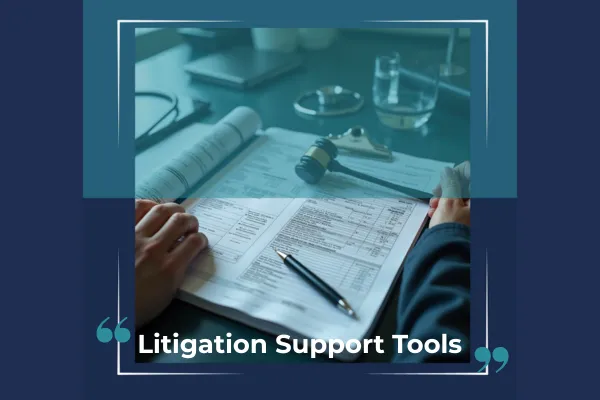
Litigation Support Tools
Legal and Compliance Documents:
An exhaustive checklist of every document you should collect for accurate, defensible case reviews. Use this guide during discovery, intake, or case prep to ensure your experts have what they need.
1. Patient Identification and Demographics
Full legal name, DOB, and current address
Social Security number
Health insurance details (policy numbers, carriers)
Emergency contact(s)
2. Accident and Incident Reports
Police or EMS reports
Employer incident reports (for workplace injuries)
Witness statements or affidavits
Photos or videos from the accident scene
OSHA or safety violation reports (if applicable)
3. Medical History and Pre-Existing Conditions
Past hospitalizations, surgeries, or chronic conditions
Medication history (prescription and over-the-counter)
Previous personal injury or workers' comp claims
Existing limitations that may relate to current injuries
4. Initial Medical Evaluation and Emergency Treatment
Emergency room records and triage notes
Paramedic/ambulance transport documentation
Initial physician exam and diagnostic impressions
Admission and discharge summaries.
5. Imaging and Diagnostic Tests
X-ray, CT, MRI, or ultrasound reports
Radiology interpretations and timelines
Laboratory test results
Functional capacity evaluations (FCEs)
6. Ongoing and Follow-Up Treatment
Follow-up physician and specialist progress notes
Treatment summaries from physical therapy, chiropractic, or pain clinics
Rehabilitation plans and goals
Medication refills, dosage records, and compliance
7. Surgical and Procedural Records
Operative notes and surgical reports
Anesthesia records
Post-op instructions and recovery observations
Discharge follow-up documents
8. Mental and Behavioral Health Records
Psychological or psychiatric evaluations
Therapy progress notes
Medications for anxiety, depression, or PTSD
9. Work Capacity and Functional Impact
Return-to-work evaluations
Restrictions from treating providers
Absence documentation or disability claims
Statements of lost wages or job modification recommendations
10. Financial and Insurance Documents
Medical bills and Explanation of Benefits (EOBs)
Out-of-pocket expense documentation
Pharmacy receipts and prescription logs
Any prior insurance settlements or payments
11. Pain and Quality of Life Evidence
Pain diaries or symptom logs
Patient statements about life impact and limitations
Family or caregiver observations
Documentation of lifestyle restrictions or changes
12. Legal and Compliance Documents
HIPAA authorizations and release forms
Records subpoena logs
Chain of custody if handling physical evidence
